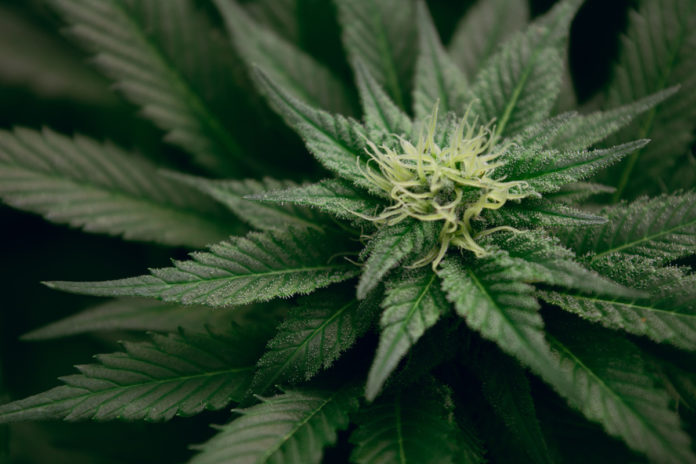
As of January, Colorado allows for home delivery of medical marijuana. With COVID-19 causing food shortages at grocery stores and demanding social distancing precautions, this has been an important change for those who need it.
However, many regulations and requirements limit home delivery. Only medical marijuana is allowed to be delivered to the home. Second, when the legislature approved medical delivery in 2019, it contained a local opt-in option for jurisdictions to decide whether to allow deliveries.
“The delivery idea has been in the works prior to COVID, but it is fortuitous to allow medical patients to get products delivered,” Ireland Stapleton associate Sean Jennings said, “And that experience might help local governments look at delivery options for the future.”
In 2019, a movement started for allowing marijuana delivery, he said. The impetus grew out of both the industry and consumer requests for such services, and a system was set up last year. When the legislature voted to approve deliveries, it also decided to implement a slow roll out of the service, beginning with medical marijuana after January 2020, and looking at retail in January of 2021, Jennings said.
The changes did not happen overnight. “Delivery is a service that has been provided by the illicit market for a long time, and we’re working to allow regulated businesses to provide the same service to patients and adults in Colorado,” said Jordan Wellington, of counsel at Vicente Sederberg.
Currently, two jurisdictions in Colorado allow marijuana delivery — Superior and Boulder. Jennings said there has been a fair amount of demand for delivery in the Denver Metro area, since there is a large population.
“Overall with cannabis, local government has a lot of say,” Jennings said.
While applications are available statewide, Shannon Gray, with the Marijuana Enforcement Division, said once a permit is applied for, the applicant must provide documentation to the MED saying there is a local opt-in for deliveries. Gray said there has only been one delivery permit issued, as of April 8, for The Dandelion, a medical marijuana wellness center in Boulder.
Although Boulder allows marijuana deliveries, it has more requirements for delivery than for medical marijuana in general. Boulder’s city law states that patients are allowed and included for deliveries if the medical center is designated as a “primary caregiver.” It is illegal for anyone to distribute medical marijuana to any patient except if directly to a patient upon the restricted area, or via personal delivery of the medical marijuana by the primary caregiver to the patient at the patient’s residence.
“Due to the mention of primary caregiver in our local law, a patient cannot have deliveries from several different Boulder medical marijuana wellness centers but instead only from the one that the patient has designated (or registered according to the state) to provide the patient’s medicine,” said Mishawn Cook, Boulder’s licensing manager. “Any keyholder (store employee with security clearance) can do a delivery to any patient who has designated the center as his, her or their provider”
Delivery could still be an option for some jurisdictions without approved marijuana facilities, however.
Jennings said a jurisdiction could allow marijuana deliveries without approving a marijuana facility in that jurisdiction. For example, if a town had not permitted a marijuana facility in their borders, they could allow r medical delivery from another jurisdiction that had approved facilities.
The delivery model for medical marijuana is based on the delivery of alcohol, Jennings said, though the marijuana delivery rules are more detailed and all-encompassing. For instance, there are specific rules that follow the “seed-to-sale” tracking system, which tracks marijuana products from its origin to its final sale. In delivery operations, that tracking specifies that the delivery vehicle must be owned or leased by the delivery permit-holder, equipped with a tracking device and devoid of any markings that identify it as a marijuana delivery vehicle. In addition, there is a set dollar limit on how much marijuana product can be in a vehicle at one time, Jennings mentioned, and the compartment inside the vehicle that contains the marijuana must be secured and locked. There must also be video surveillance of the front of the vehicle and the containment sectors, which must be available for the MED to inspect for 40 days after a purchase. Local jurisdictions could institute stricter requirements. Gray said the MED prioritizes fighting potential robberies or products to be sold on the black market. She pointed to a few regulations in place to discourage those sorts of activities, such as the video surveillance, delivery manifest requirements and the seed-to-sale tracking system and production cycle. While there is currently only one delivery permit in the state, other jurisdictions are considering delivery as well. Jennings pointed to Denver considering delivery options in public meetings as an example. And, looking toward the future there are hopeful attitudes toward legal marijuana delivery.
While recreational delivery will not start until 2021, it makes sense to take a gradual approach to delivery, and that local governments should look at their options, Jennings said.
“Our team, along with many other stakeholders, are working with local governments on advancing delivery policy,” Wellington said.
“We’re excited to work with policy makers to find pathways to provide this service to patients and customers.”
The MED anticipates more applications for permits for delivery as more local jurisdictions opt in for delivery, Gray said.
— Avery Martinez

